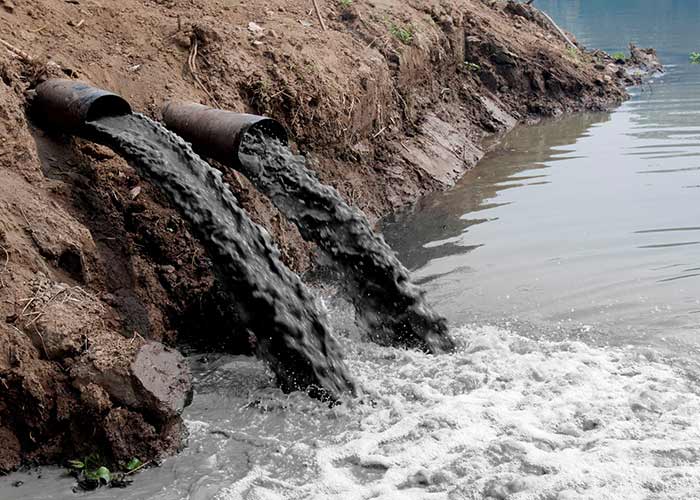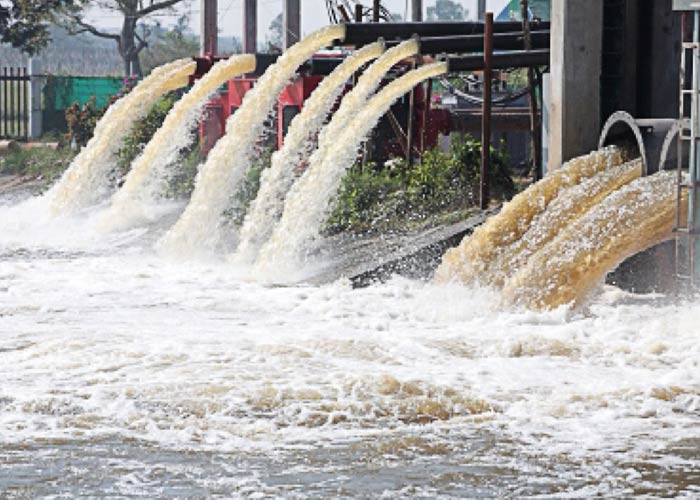Organic Farming is the natural way of farming in which no chemicals are used either as fertilizers, or pesticides. Organic Farming is done using only natural manures like organic wastes, farm wastes, animal wastes, compost, etc. It basically aims at keeping the soil alive with maintaining the health of soil. Crop rotation, mixed cropping and biological pest control are some of the methods being followed in Organic Farming.
What is Organic Farming (Meaning of Organic Farming)
Organic Farming emphasizes on using only biological materials and bio-fertilizers to provide nutrients for the growth of the crops and that too in pollution free and Eco-friendly environment. In India, Organic Farming is the ancient way of farming which is being followed since ages to gain sustainable crop production.
Crop rotation is one of the main constituent of this kind of farming. In this method of farming a great emphasis is laid on maintaining the health of the soil by crop rotation. After every crop, the farmers grow leguminous plants with other crops to recharge the soil with atmospheric Nitrogen which is an important mineral required for bumper crop production. These leguminous plants through their roots nodules fix Nitrogen into the soil to make it fertile once again.
Types of Organic Farming
It is since, India is a vast country, there are different methods of Organic Farming followed across the country and it largely depends on the kind of soil and weather conditions prevailing across the length and breadth of the country. Following are the two major types of Organic Farming:
- Integrated Way of Organic Farming
Integrated Organic Farming is followed largely across the country. Integrated way of nutrients management and pest management are the two key pillars of this kind of organic farming. In Indian villages integrated way of organic farming is being followed since ages. According to this method, the farmers take crops by integrating all the required nutrients from natural resources in such a way that the crops maintain their complete nutritive value. Simultaneously it helps prevent the plants from getting damaged from pests but in a natural way.
Over the year successive governments have launched farmers’ awareness drive to educate and train farmers in new scientific developments to increase crop production by integrated way of organic farming. Consequently, integrated organic farming has become overly popular resulting in improvement of crop yield in even the hilly regions like North-Eastern states. Meghalaya is a shining example of improvement in agriculture through integrated organic farming.
Moreover, concerted efforts are being made through progressive research towards improving the integrated farming in different agriculture Institutes in India has resulted into widespread use of the integrated farming methods like crop rotation, double and triple cropping systems, the farmers are able to increase their income over the years through integrated way of organic farming.
- Pure form of Organic Farming
Pure form of organic farming is one such farming method in which the farmers use only organic manures and the pesticides. Especially the pesticides used in this kind of farming also remain chemical free. These pesticides are made only through natural substances like Neem, etc. In other words we can say that pure form of organic farming is done with complete avoidance of any kind of inorganic chemicals as fertilizers as well as chemical pesticides.
- Integration of different farming systems
Integration of different farming systems involves several other components of farming such as poultry, mushroom production, goat rearing, and fishpond simultaneously with regular crop components.
Methods of Organic Farming
Following are different methods of organic farming however all these methods are required to be followed simultaneously during the process of such farming:
1. Management of Soil: Soil management is the soul of organic farming. It’s a well-known fact that after taking one crop, the soil of the farm loses most of its nutrients and its fertility goes down. To process of recharging the soil with all the necessary nutrients is called soil management. In organic farming the nutrients are recharged in the soil through natural ways to increase the soil fertility. For this purpose, animal waste is increasingly used to recharge the soil with the necessary nutrients. The bacteria present in animal waste make soil fertile once again.
2. Management of Weeds: Organic farming focuses on removing the weeds from the soil during the crop production. Weeds are unwanted plants that grow in the agriculture fields simultaneously with the crops and they suck most of the nutrients present in the soil. As a result the production of the crops gets affected. To get rid of weeds the farmers follow the below mentioned techniques
Mulching and Cutting or Mowing: Mulching is a process in which the farmers use plant residue or plastic films on the surface of the soil which blocks the growth of the weed while cutting or mowing helps in removal of the growth of the weeds in the farms.
3. Crop diversity: Crop diversity is one of the most important methods of Organic Farming and there are two practices followed for this. Monoculture and Polyculture. In monoculture form of organic farming, the farmers take only one crop at a time while following polyculture method, the farmers harvest different kinds of crops in one field and get leveraged by increase in production of different crops from one field. Polyculture way of organic farming also helps in producing microorganisms in soil to make it excessively fertile.
4. Controlling the harmful organisms: Organic farming lays much emphasis on controlling the harmful organisms present in the agricultural farms which negatively impact the crop production capacity of the fields. For this purpose the farmers use pesticides and herbicides, however in organic farming only natural pesticides are used.
5. Use of green manure: In organic farming, the farmers use the dying, or uprooted plants as green manure. These plants are turned into the soil through tilling to decay further and form nutrient for the soil to increase its fertility.
6. Use of compost: The farmers prepare compost by digging a pit and filling in it green waste and water to decay. Later this compost which is highly rich in nutrients for crops is used as fertilizer in the farms to increase the soil fertility.
Importance of Organic Farming
Organic farming is an important way of maintaining the natural habitat. Through organic farming the environment remains pure and less polluted and all the sources to maintain life on this planet remain less threatened. Moreover, organic farming is imported to provide healthy food to the people. When they consume the produce of organic farming in the form of healthier food very less or no chemical enter in their body through food and hence they become less prone to deadly diseases. Moreover the soil remains in better condition and excessively fertile because of the natural manures used in organic farming.
Advantages of Organic Farming
- Regenerating the degraded soil: Organic farming is the best way to prevent environmental pollution as well as degradation of soil. In some areas of the world where the soil has been degraded due to excessive use of chemical fertilizers, organic farming is helping in regenerating the soil by recharging it with necessary nutrients.
- Maintaining the optimal condition of soil: Since only Organic manures are used in organic farming it helps in maintaining the optimal condition of soil to gain higher production of good quality of crops.
- No need to purchase chemical manures: The farmers use only natural and organic manures in organic farming so the farmers are not required to purchase any chemical manures which reduces the expenses of the farmers considerably.
- Improves soil quality: Organic farming helps the soil regain its fertility power, since this kind of farming supplies various necessary nutrients in the soil and moreover it helps the soil in retaining its nutrients.
Disadvantages of Organic Farming
- Higher production costs: For organic farming the farmers require more manpower to maintain various works associated with it which increases the crop production costs.
- Crops yield become more expansive: Since the farmers do not get much yield from their farms through organic farming in comparison to the conventional farming their produce becomes more expansive.
Conclusion
If we take long term perspective, organic farming is necessary to sustain life on the mother earth. Organic farming is necessary to recharge the soil’s fertility in a natural way and to produce healthy food for the people. Even though the farmers can be impacted by low crop yield, organic farming is necessary for all to lead the life in a natural way with maintaining ecological and environmental balance for the future generations. Looking at the current scenario when the soil in our agriculture fields are getting deteriorated due to excessive use of chemical fertilizers, Organic farming can be the best way to recharge the Mother Earth with all the natural nutrients so that human population may lead more healthier life.







